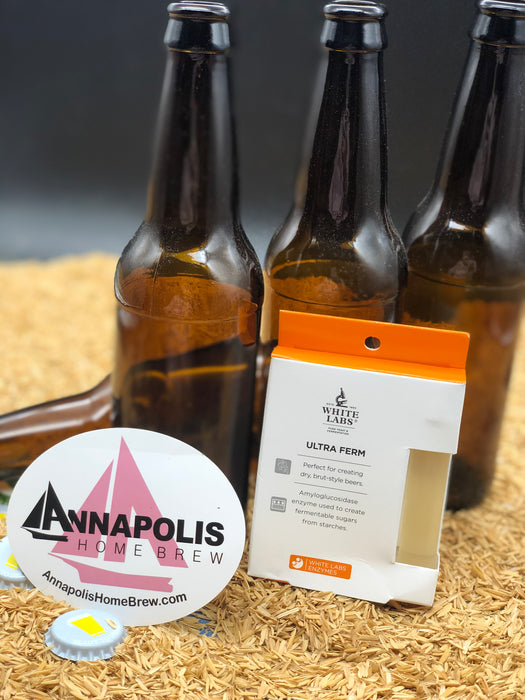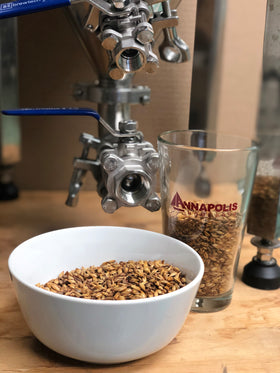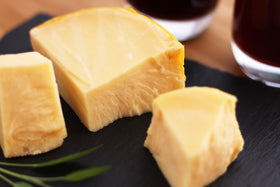
White Labs Ultra-Ferm WLN4100
White Labs Ultra-Ferm (WLE4100) is a liquid amyloglucosidase, meaning its highly concentrated, from selected classical strains of Aspergillus niger. Ultra-Ferm can be used to make Brut IPAs and dry beers, or even in distilling.
There are several different reasons for its use including:
- To reduce saccharification times
- To saccharify unmalted cereal brews
- To increase attenuation
Beer Production:
Brewers often want to produce light beers or dietetic beers. In these cases the brewer wants a controlled or complete hydrolysis of starch and dextrins to fermentable glucose. Traditional brewing methods permit only 75 to 80% hydrolysis of starch present in the grain raw material. Ultra-Ferm amyloglucosidase permits total hydrolysis of dextrins to fermentable glucose, from all types of starch.
In homebrewing the dosage is 10mL for 20L/5Gallons. It can be added at the beginning of the mash-in. Ultra-Ferm has an optimal pH between 3.5 and 5.5 and the temperature should not exceed 60C, amyloglucosidase activity is completed destroyed when the wort is held at 85C for 10 minutes.
Spirits Production:
After starch liquefaction by alpha-amylase, dextrins are hydrolysed in glucose by amyloglucosidase, before alcoholic fermentation. Ethanol production is faster and yield is higher. The recommended saccharification temperature is 60°C.
A suitable substrate for saccharification is a liquefied starch with a dextrose equivalent (DE) between 10 and 20. A higher DE than 20 might reduce the saccharification efficiency. The concentration of the substrate will also influence the saccharification efficiency. A concentration of 20-25% is a general practice. ULTRA-FERM dosage, for given reaction time, depends on the amount of glucose requested. It is usually recommended to add 400 ml per ton of starch for a fast hydrolysis. Possible pH range of use is from 3.5 to 5.5 with optimal between 4.0 and 5.3.
Optimal temperature is 60°C. Amyloglucosidase activity is completely destroyed when the saccharified liquor is held at 85°C for 10 minutes. As an example: a yield of 94% glucose can be obtained after 40 hours with 36000 AGI per kg dry matter; after 72 hours with 17000 AGI/kg and after 85 hours with 13000 AGI/kg, at pH 4.5 with temperature 60°C.



